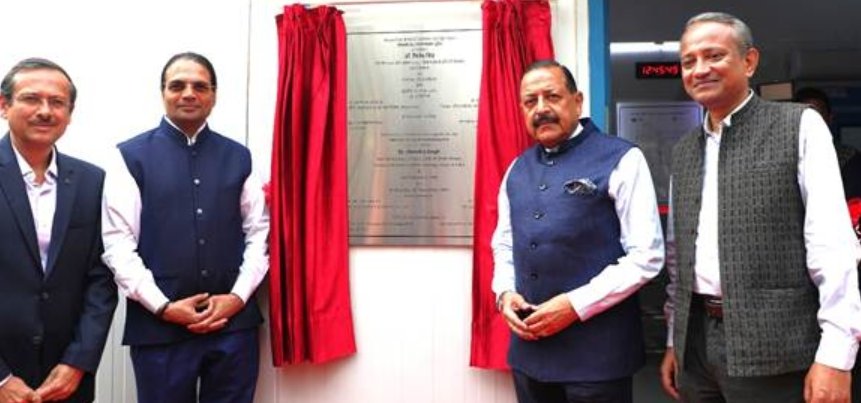Fortis Mulund first to implant S-ICD in Western India
August 22, 2018 | Wednesday | News
Subcutaneous Implantable Cardioverter Defibrillator (S-ICD) is a unique system that sits outside the heart, with no leads in contact with the heart chambers or its vasculature.
Dr Atul Limaye, Interventional Cardiologist, Fortis Hospital Mulund
Saif Fakhir, a 36yr old Iraqi national was suffering from recurrent fevers for over 6 months. His condition would improve for a short span after courses of antibiotics were prescribed by local doctors; however, there was no long-term relief. Since his ordeal did not end, he visited Fortis Hospital, Mulund along with his father, and was admitted under the care of Dr Atul Limaye, Interventional Cardiologist, Fortis Hospital Mulund.
A detailed assessment revealed that he had persistent blood stream infection. Dr. Limaye suggested that he undergo an Echocardiogram; the results of which concluded that the source of infection and the fever was the Implantable Cardioverter Defibrillator (ICD) lead, which was placed inside his heart during a procedure conducted a few years ago. Since no other solution was available to treat his condition, Dr. Limaye suggested that the infected lead be removed and replaced with a new type of lead that has no contact with the heart or vascular structures.
The Implantable Cardioverter Defibrillator (ICD) is a small electronic device connected to the Heart which is used to continuously monitor and help regulate potentially fast and life-threatening electrical problems within the heart. The new system had to be novel, as the patient had had recurrent infections from prior trans-venous implants, the leads of which reside inside the heart chambers. Dr. Limaye decided to implant a Subcutaneous Implantable Cardioverter Defibrillator (S-ICD), a unique system that sits outside the heart, with no leads in contact with the heart chambers or its vasculature. The procedure was planned in two steps; first removal of the infected lead from the heart and subsequently implanting the S-ICD system. Both procedures were conducted 4 weeks after admission, as doctors had to first manage the existing infection in the patient’s blood.
The biggest challenge faced by Dr. Limaye and his team, was the removal of the infected ICD lead from Saif’s heart. Whenever the ICD lead is inside the heart for a prolonged period, it becomes enmeshed in the trabeculae inside the heart and becomes adherent to it. With expert precision, the team successfully removed the infected ICD system with specialized “lead extraction” equipment to free up the lead from within the heart, avoiding any damage to the heart structures. Subsequently, the S-ICD was successfully implanted, and the device was tested to ensure efficacy. Saif was kept under ICU observation and monitored round the clock for the next 24hrs and discharged 3 days after the SICD procedure.
Speaking about the procedure, Dr. Atul Limaye, Interventional Cardiologist, Fortis Hospital Mulund, said, “We are the 1st center in Western India to implant the S-ICD device and 15th all over the country. The advantage of this device is that since the device is placed outside the heart, the risk of infection is extremely low, and the patient will continue to be protected from lethal arrhythmias. Saif has responded well and we expect him to return to his country shorty.”
Current scenario of S-ICD in India- Dr Atul Limaye
"In India, only 16 implants have been carried out till date. Appropriate candidates for this device are patients with high infection risk, such as patients with Renal Disease, which are prone to lead to related complications. Also, many patients have inadequate venous access for the traditional Trans-Venous ICD systems. Such patients are again ideal candidates for SICD. Finally, young patients with Congenital Arrhythmias would benefit from such a device so that there is no intravascular presence (minimal risk of infection and problems of lead extraction whenever a lead or device gets infected).
But there is limited awareness about prevention of Sudden Cardiac Death (SCD) in patient populations prone to life-threatening Arrhythmias (such as our patient with Long QT Syndrome), therefore, in general, ICD therapy is under-prescribed in our country. SICD device and therapy has even less knowledge penetration amongst our medical fraternity. Concerted efforts by Cardiologists and device manufacturers is needed to spread awareness about this life-saving therapy. It is vastly under-utilized technology in India. Currently, only Boston Scientific manufactures the device globally."










